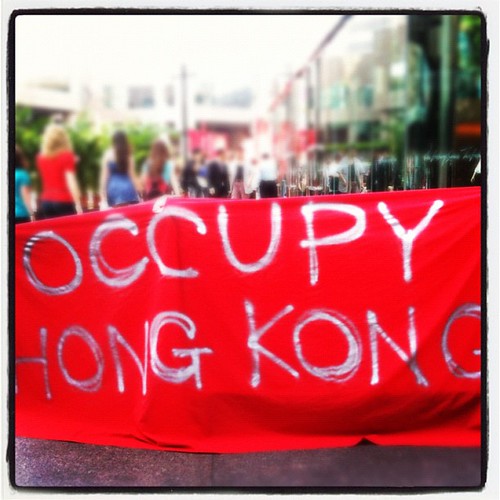
Tunisia. Egypt. Libya. Yemen. Spain. United States. Many authors have claimed that protests in these and other countries can be seen as a worldwide movement against inequality. And, recent New York Times articles add another pin on the world map of protest movements by covering recent protests in Wukan, China, over land seizures. According to one article, protests in China are becoming increasingly common,
…a reflection of the widening income gap and deepening unhappiness with official corruption and an unresponsive legal system. But the clashes in Wukan, which first erupted in September, are unusual for their longevity — and for the brazenness of the villagers as they call attention to their frustrations. Despite the government’s best efforts to control social media outlets, such frustrations have only grown as millions of Chinese gain access to unofficial sources of information and use new tools to organize protests.
Public scenes of dissatisfaction are comparatively rare in China. But last year, there were as many as 180,000 outbursts of what sociologists call “mass incidents,” including strikes, sit-ins, rallies, and violent clashes. (For comparison, in the mid-1990s, there were fewer than 10,000.)
People don’t have sufficient faith in legal procedures or the media and feel they have no redress when bad things are done to them,” said Martin K. Whyte, a Harvard sociologist who studies Chinese social trends.
Some of the protests are a response to worsening pollution, while others are a response to police brutality. Much of the unrest, including in Wukan, is in response to the seizure of land by private developers or government officials.
The discontent in Wukan has been simmering for more than a decade. Residents say land seizures began in the late 1990s, when officials began selling off farmland for industrial parks and apartment complexes. Villagers say more than 1,000 acres have been seized and resold to developers in the past decade or so. The residents’ ire exploded in September, when thousands of people took to the streets to protest the sale of a village-owned pig farm for luxury housing that netted the government $156 million.
The rest of the article gives more detail on the specific incidents in Wakun. But, multiple recent new stories on protests in China posit that these events are not isolated and are instead connected across China. And, to some, these protests are connected to others across borders and oceans as well.

Comments